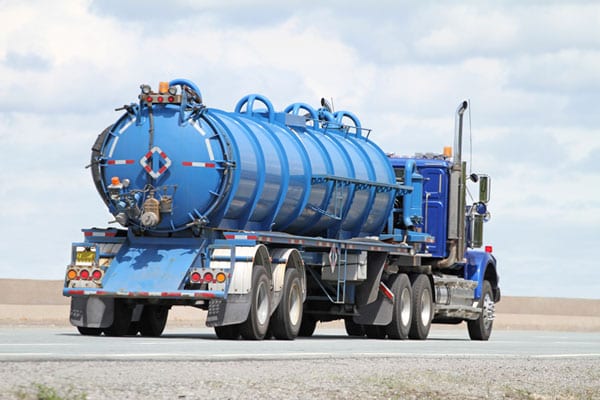8 Tips to Start an Oilfield Water Hauling Business
April 27, 2023
Starting an oilfield water hauling business takes work. It’s not always easy, but for some, the rewards of entrepreneurship far outweigh the risk as there are many benefits to being an oilfield water hauler. Here are some tips to help you succeed.
Tips to Start an Oilfield Water Hauling Business
1. Research
Before diving into your venture, thorough research is crucial. Consider the following points and conduct the necessary research:
- Business Structure: Determine which business structure suits your needs.
- Registration and Permits: Assess the time and experience required for registration and permitting processes.
- Start-up Capital: Evaluate if you have sufficient funds to launch your business.
2. Operations
Water hauling businesses secure contracts through bidding. Two common approaches to fulfilling these contracts are:
- Subcontracted Drivers: Engaging subcontractors helps reduce start-up costs, as you won’t have to employ drivers or bear equipment and insurance expenses. However, subcontracted drivers limit control and potential profitability.
- Owner-Operator Drivers: Managing owner-operator drivers allows you to maintain control over operations. By utilizing your equipment, hiring private drivers as employees, and assuming higher insurance costs, you can retain control of your business. This approach requires more start-up capital and incurs additional operating costs but offers greater profit potential.

One challenge in the industry, as highlighted by William J. from JKJ Transportation, LLC, is the difficulty of finding truck drivers. He emphasizes that good truck drivers are in high demand.
“Most of your good truck drivers are taken. That’s the hardest part to this industry is finding the help, the employees.”
3. State and Federal Requirements
Ensure compliance with federal and state requirements, tax obligations, licensing, and permitting regulations specific to the trucking industry. Key requirements include:
- Federal DOT Number and Motor Carrier Number: Learn about and apply for certifications on the official website of the Federal Motor Carrier Safety Administration fmcsa.dot.gov.
- Heavy Use Tax Form (2290): Comply with tax regulations related to heavy vehicle usage on U.S. roads IRS Form 2290.
- International Registration Plan (IRP) Tag: Obtain IRP tags by visiting your state’s transportation website and its IRP portal.
- International Fuel Tax Agreement (IFTA) Decal: You can also get this at your state’s transportation website.
- BOC-3 Filing: Maintain active operating status by using a processing agent and completing the BOC-3 filing sheet.
4. Insurance
Given the nature of commercial vehicle operations, insurance costs for your business will generally be higher than for other industries. Visit the US Small Business Administration for information on required coverage.
Additionally, ensure compliance with health and safety standards enforced by the US Department of Labor’s Occupational Safety and Health Administration.
5. Equipment
If you opt to operate with private drivers, you’ll need at least one commercial vehicle. Secure working capital to finance equipment purchases. Consider whether leasing or buying equipment would be more advantageous, as leasing can help conserve working capital.
6. Getting Started
The initial costs of starting any business can be overwhelming, and water hauling is no exception. Securing contracts from oilfield companies can be challenging and highly competitive. As a startup, you’ll need to work hard to build a reputation and secure your first master service agreement. Initially, you may need to accept smaller contracts.
Building a good reputation is crucial, as word-of-mouth recommendations carry significant weight in the industry. In a previous blog, we interviewed an oilfield foreman who gave this advice about building your reputation:
“Word of mouth travels fast around here, and we are not Googling these service companies in the Permian deciding if we will work with them or not. It is difficult and takes time to build a good reputation, but a bad reputation can start as quickly as after the first job.”
7. Securing Your First MSA
Securing your first MSA with an oilfield exploration or production company is a significant milestone. MSAs are contracts used by oilfield companies with their suppliers. It’s essential to thoroughly review the terms and conditions of your MSAs in detail to help ensure payment from your customer. Failure to comply or fully understand the MSA could result in non-payment. Pay close attention to invoicing and insurance requirements, as well as any conditions regarding liens or encumbrances.
William J. from JKJ Transportation, LLC, advises closely monitoring drilling activities and being proactive in securing new contracts:
“Watching the drilling, seeing what they’re doing, where they’re at…”
Right now, he’s seeing the biggest growth in West Texas.
However, even though it’s a tough business, William stated that the demand is “real high, real high demand.”
8. Steady Cash Flow
Maintaining a steady cash flow is crucial for growing and operating your business. However, many oilfield service and exploration companies have payment terms of 30, 60, or even 90 days. Waiting for customer payments can hinder your ability to cover payroll, equipment, fuel, and other business needs. To overcome this challenge, consider invoice factoring, which allows you to receive immediate payment for your invoices. This ensures a steady cash flow and eliminates the wait for customer payments.
By following these updated tips and adapting to the evolving oilfield water hauling industry, you can increase your chances of success as an entrepreneur in this field.
If you’d like to learn more about our invoice factoring programs, give us a call at (800) 707-4845 or fill out the form below. Our month-to-month financing programs provide companies the working capital they need to grow and succeed.


